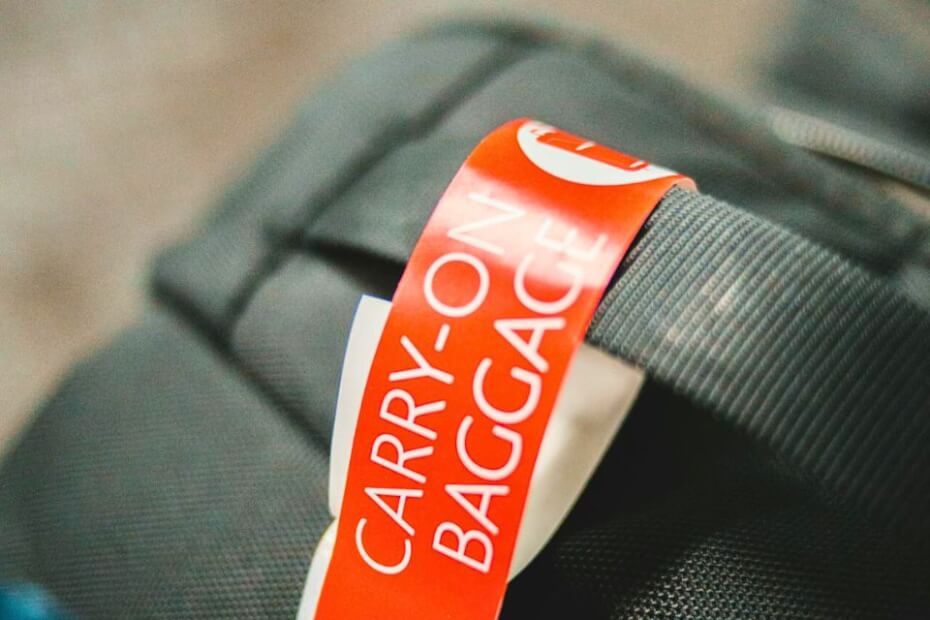
The Association of British Travel Agents (ABTA) issued an urgent warning for travelers flying in and out of airports in the United Kingdom (UK).
Due to the “lack of consistency across UK airports,” ABTA said travelers should follow the current hand luggage rules.
This means liquids in hand luggage should still be stored in containers no larger than 100 milliliters (ml).
Luke Petherbridge, ABTA’s Director of Public Affairs, said that by doing so, travelers would “be ready to comply whatever the scenario.”
This will significantly help avoid any unnecessary delays through security and other difficulties during their holidays.
ABTA also advised travelers to check in advance with the UK airports they will be traveling to and from.
New airport scanners for a smoother travel experience
ABTA’s advice comes after the British government extended the deadline for some airports to install next-generation airport scanners.
The new airport scanners are equipped with CT X-ray technology, which produces 3D images. Such scanners are already used by some major airports worldwide.
The 3D scanners would have enabled travelers to carry liquids larger than 100 ml in their hand luggage.
They would also have allowed travelers to keep their electronic devices inside their bags during the security process.
Which? Travel editor Rory Boland told The Independent that it was “very disappointing” that some airports will miss the deadline to install the new airport scanners.
He added that the “scanners had the potential to drastically cut security queues in time for the peak summer travel season.”
Delays in installing latest-technology airport scanners
The UK government’s original deadline for airports to install the new scanners was 1 June 2024.
However, many UK airports, such as Heathrow, London Gatwick, and Manchester, said they would not be fully ready by then.
Aviation expert Sally Gethin said the delays could be due to the high cost of the technology and the scanners’ weight.
She told BBC News that apart from cost, “sometimes the floors in the actual terminal have to be reinforced.”
Heathrow’s terminals T2, T3, and T5 already have some new scanners. T4 terminal is expected to have some by the summer.
A spokesperson for London Gatwick said they would “have made significant progress” installing the new scanners by June 2024.
After the busy summer travel period has ended, the airport plans to complete installation by the first quarter of 2025.
Manchester Airports Group (MAG), which operates Manchester, Stansted, and East Midlands airports, shared the same completion estimate.
A spokesperson for MAG described it as a complex project that requires “expansion of terminal facilities while at the same time maintaining operations during construction.”
The new deadline has been extended 12 months later to June 2025.
More checks for British citizens going on travel holidays
UK citizens still holding the old red passports are also urged to check their validity before booking any holiday trip.
Since the UK left the European Union (EU), blue British passports have replaced the older red ones.
The old red passports of the UK can still be used until they expire. However, they may no longer be valid depending on the holder’s travel destination.
British citizens traveling to EU member states must satisfy two conditions before being allowed to enter the Schengen Zone.
First, they must have passports that are not over ten years old when they leave the EU bloc.
It’s also important to note that countries in the Schengen Zone use a passport’s date of issue as the “starting point.” This is crucial for travelers whose passports are valid beyond ten years.
Second, UK nationals must have three months of passport validity upon exiting the Schengen Area.
Even so, the UK government recommends that British travelers keep their passports valid for EU travel for at least six months before expiration.
That way, having six months in their passport validity ensures UK citizens can travel for the entire 90-day period and still leave Europe with a valid passport.
Post-Brexit, UK nationals are only allowed to visit the Schengen Zone without a visa for 90 days within a 180-day period.
British travelers are still advised to check the validity of their passports if traveling to destinations outside the EU.
Some countries require passports to be valid for the entire stay, while others require them to be valid for a specific time to allow entry.
Additionally, travelers are reminded to arrange for travel insurance immediately after booking their airline tickets.
This will ensure that travelers receive compensation for flight cancellations and other disruptions.

